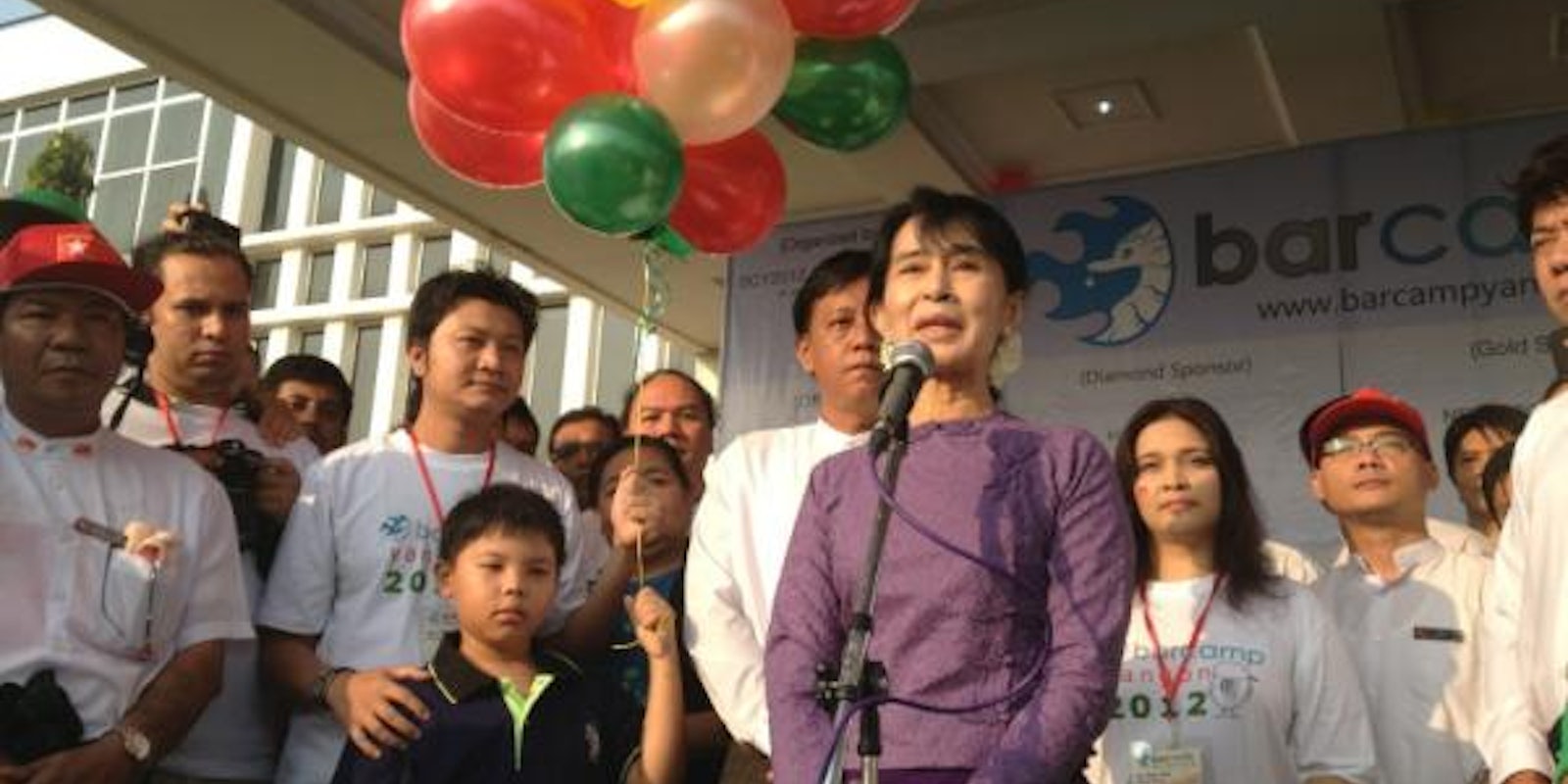Between 2009 and 2011, Myanmar has consistently ranked as one of the worst offenders of Internet freedom and the freedom of the press due to to strict censorship laws.
But that may soon change. As of February 2012, Myanmar “has lowered its firewalls, opening access to social-media sites such as Facebook and Twitter,” reported the Economist.
The Myanmar government’s change of tune is thanks in part to Emily Jacobi, founder of BarCamp, “an unstructured conference and chat-fest” intended to illustrate “the promise, changes and problems Myanmar presents as the next frontier for investors,” Reuters reported.
In 2009, Jacobi traveled to Asia to scout out locations for the conference and build support. What she found in Yangon, Myanmar were business-savvy professionals, bloggers, and developers eager to get their hands on new technology.
“BarCamp Yangon recorded as the world largest barcamp,” Jacobi tweeted on Feb. 10, the day before this year’s conference.
In total, more than 5,000 people attended the conference, tweeted Htoo Tay Zar, a Web designer in Southeast Asia. And since then, Internet demand has skyrocketed in Myanmar, despite its astronomical cost, which can run anywhere from $40 to $150 a month, plus an initial connection fee around $850.
“Firms from Asia and the West are paying unofficial visits, and local companies are scrambling to become their partners,” reported the Economist. “The government faces a barrage of proposals on how to lower the cost of mobile phones and how to build data centres to compete with those in India and the Philippines.”
Myanmar’s history with the Internet has been contentious. Over the last seven years, more than 30 journalists and bloggers have been detained in Myanmar for breaking the country’s Internet censorship laws. In 2008, blogger Nay Phone Latt was sentenced to 20 years in jail for “posting a cartoon of the military leader Than Shwe,” noted the BBC.
While many Myanmar natives are excited over the censorship reform, others like Aung Zaw, founder of the news magazine The Irrawaddy, remain cautiously optimistic.
“People are more open to talk about politics,” Zaw told Time magazine. “They don’t have the fear, they are more hopeful.”
Photo from @thaungsunyein


